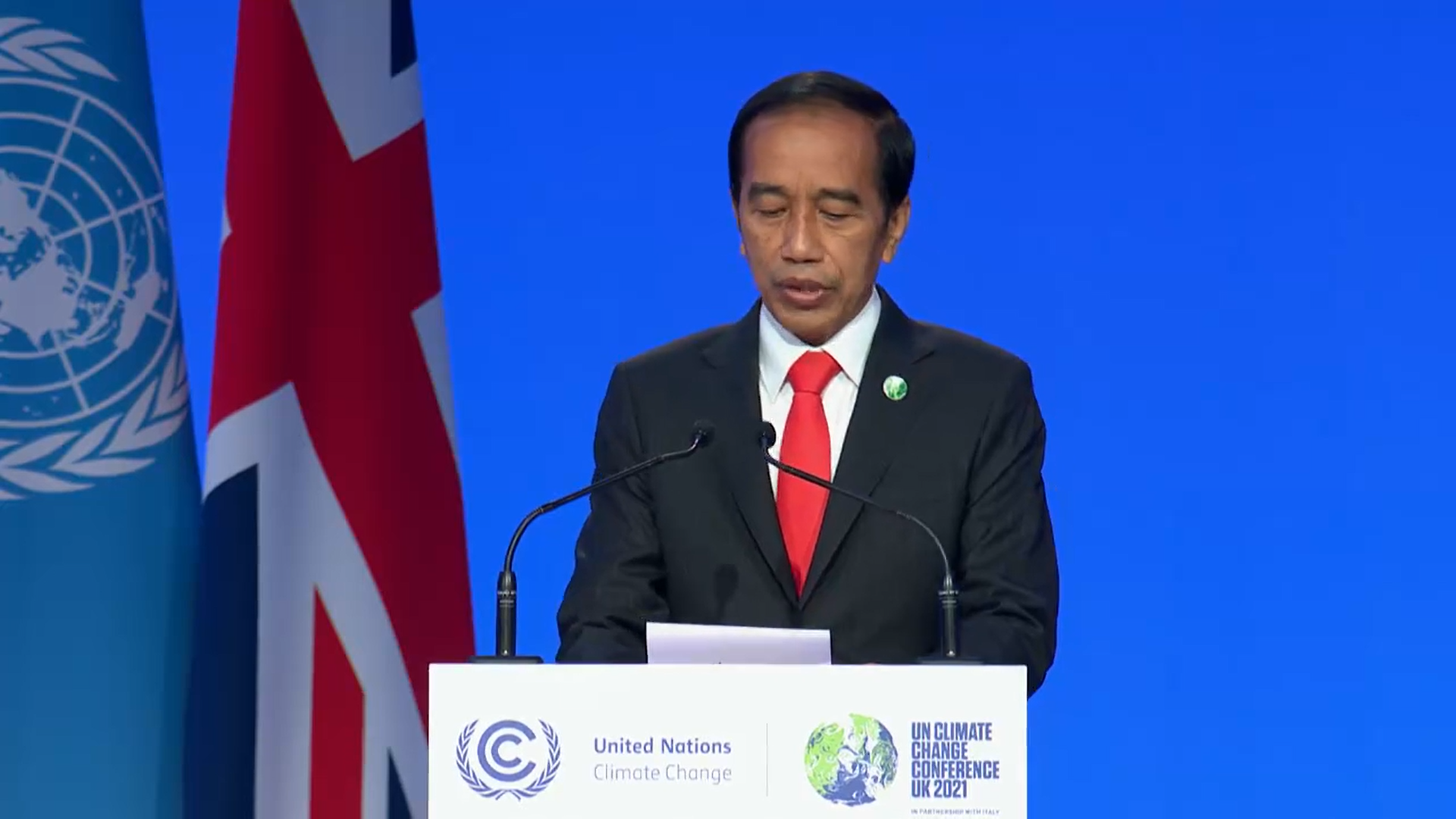Many parties are waiting for President Joko Widodo’s speech at COP26. Jokowi is expected to declare more ambitious commitments to reduce emissions and deal with climate change as well as to outline concrete steps towards net-zero emissions. Indonesia’s strategic position as the leader of the G20 countries in 2022 should make Indonesia take one step ahead to lead efforts to reduce emissions for G20 member countries.
Unfortunately, in his speech at the High Level Segment for Heads of State and Government COP26 session, President Jokowi did not announce a higher climate ambition target nor a concrete commitment to support the Paris Agreement target to limit the increase in the average temperature of the earth below 1.5 degrees Celsius and achieve carbon neutral by the middle of the century. The IPCC AR6 report has stated clearly that we have less than a decade left to keep the earth’s temperature rise at 1.5 degrees Celsius. The opportunity to increase Indonesia’s climate ambitions is still open and of course the Government must take it and make the best use of it to save the earth from the damage caused by climate change.
Efforts to reduce emissions and address climate change must be seen as both a responsibility and an opportunity to transform Indonesia’s economic system from a carbon-intensive one to a more sustainable low-carbon economic system. According to the IESR Deep Decarbonization study, the transformation of the energy system will create 3.2 million new jobs in the renewable energy sector. An ambitious commitment by setting targets for reducing ambitions that are larger than the current NDC and building a comprehensive energy transition roadmap will send a good signal for investors to invest in Indonesia. This will encourage Indonesia’s economic strength to become more globally competitive.
Previously at the G20 Summit which took place on October 30-31 2021, the leaders of the G20 countries agreed to achieve net-zero emissions by the mid of this century. However, this commitment has not yet been accompanied by a target for the phase-out of coal-fired power plants. Holding a strategic role in the G20 leadership, Jokowi could actually take the opportunity to encourage G20 countries to stop operating coal-fired power plants and switch to renewable energy. Of course, in this case, Indonesia also needs to implement a policy of abandoning coal so that it can set an example for other G20 countries.
In addition, there is a difference between actions and facts on the ground in Jokowi’s speech at COP 26. He mentioned that he would build the largest PLTS in Southeast Asia and encourage the use of renewable energy to reduce emissions in the energy sector. However, until COP 26 took place, supportive policy support for the PV mini-grid ecosystem, such as the Revised Regulation of Ministerial Regulation 49/2018 concerning the Use of Rooftop Solar Power Generation Systems by Consumers of PT Perusahaan Listrik Negara (Persero) as well as Presidential Regulations concerning new and renewable energy, had not been officially issued.
More ambitious climate action is urgently needed now as the effects of climate change are becoming more frequent as La Nina returns. The Climate Transparency report 2021 states that changes in La Nina and El Nino patterns will have an impact on the onset and duration of the rainy season in Indonesia. This affects the agricultural sector such as rice production. The World Bank’s global risk analysis places Indonesia in the twelfth of 35 countries that face a relatively high risk of death from exposure to floods and extreme heat. Ranked as the fifth country with a population that lives in areas lower than the coastal zone, Indonesia is also vulnerable to sea-level rise.
Indonesia is able to make a significant contribution to tackling climate change and preventing worse impacts from the climate crisis. Utilizing vast forests as carbon sinks, having renewable energy potential reaching 7879.4 GW, and playing a strategic role in the G20 Indonesia should be able to achieve and exceed the current NDC target of reducing emissions by 29% on its own and up to 41% with international support from business as usual in 2030. By doing this, Indonesia will not only save the environment but also transform the economic system, as well as demonstrate leadership innovation to the members of the G20 countries.

